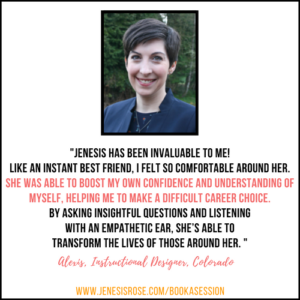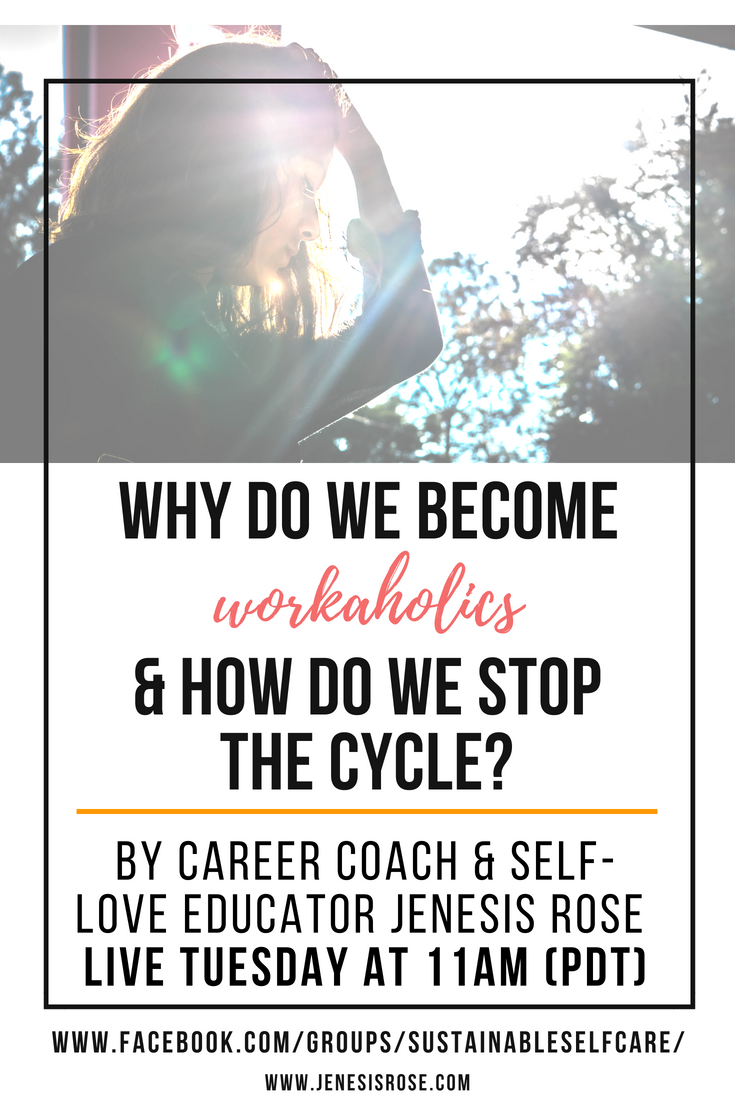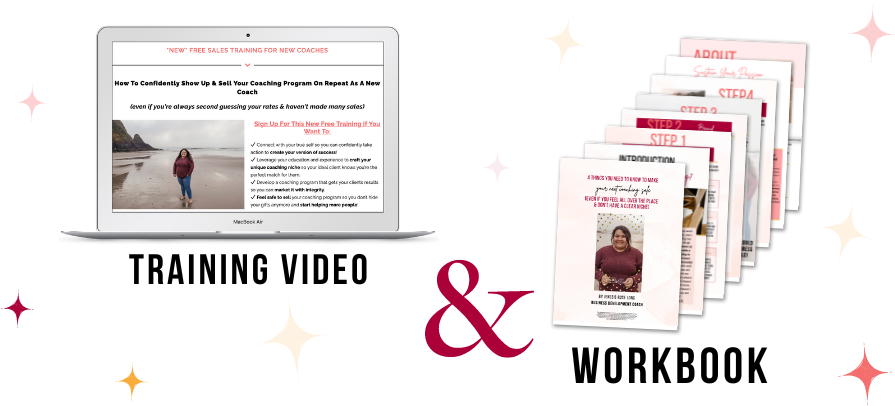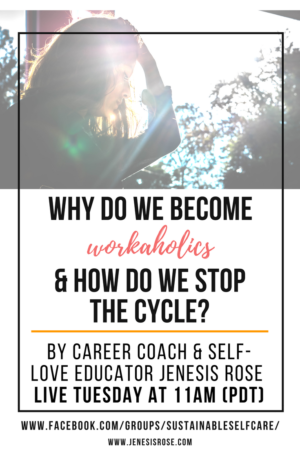
What does it mean to be a workaholic?
Being a workaholic means that we work compulsively to the point that it hurts our well-being or negatively impacts our health, relationships, and other priorities. We’re talking about when working is hurting your overall well-being and yet you still feel compelled to work and work and work.
This looks like — working more hours than required, signing up for extra responsibilities, not being able to say “no” to new opportunities at work, and ultimately prioritizing work over anything else in our lives
From a Forbes article…7 signs of being a workaholic are:
- You think of how you can free up more time to work.
- You spend much more time working than initially intended.
- You work in order to reduce feelings of guilt, anxiety, helplessness and/or depression.
- You have been told by others to cut down on work without listening to them.
- You become stressed if you are prohibited from working.
- You deprioritize hobbies, leisure activities, and/or exercise because of your work.
- You work so much that it has negatively influenced your health.
Do any of these resonate with you? I know I used to exhibit a lot of these traits before shifting gears and learning to prioritize myself and my needs over work, and establishing a work-life balance that WORKS.
Why do we become workaholics?
We all have needs that we need to meet. Some of the ones that a workaholic might be trying to meet by over-working could be a sense of belonging, safety or significance.
Belonging: It may feel like you have to over-work to be a part of the team or to be respected by your supervisor. We may become more agreeable than is healthy in order to stay on peoples ‘good sides’ out of fear we might lose our job or our relationships. Growing up, you may have been taught that productivity = value, and our supervisors, colleagues, and society at large can continue to teach us that belief with the way they treat us. Perhaps you experienced some childhood trauma or received lessons from your parnets about your self worth being related to your ability to follow orders, get good grades, or clean room. I can recall how important it feltl to me to earn good grades. I even cried in my Geometry teacher’s office because I got a B+, afraid that I wouldn’t receive love or attention without earning A’s.
Safety comes into play when we think about what if we lost our jobs? Do you suddenly feel anxious and overwhelmed? Do you feel stuck and lost? Or do you feel that you trust yourself to figure it out? Do you know that this is one job and there are others out there that you could get? Or do you feel over-committed to this one job? Does this ONE job feel like your only lifeline because you don’t know how your skills or experience would translate to other opportunities?
Significance can come from all sorts of relationships and things we do in our lives. We all need to feel important. But someone may become a workaholic if their interpersonal relationships or outside of work engagements are not providing them with a sense of importance, commitment, or interest. You may know how to achieve significance at work (by over-working) so you become overly invested in your career identity and devote all of your energy to achieving rewards and recognition at work.
How do we stop the cycle?
We can stop the cycle of becoming a workaholic by…
- truly disengaging from work, daily
- asking for support at work
- learning how to set boundaries at work
- monitoring our time spent on work (physically there or mentally there)
- priotitizing our self-care needs (which happens by first identifying what they are)
- prioritizing our out-of-work relationships
- engaging in stimulating hobbies
- getting the support we need to make the changes we know will help improve our well-being
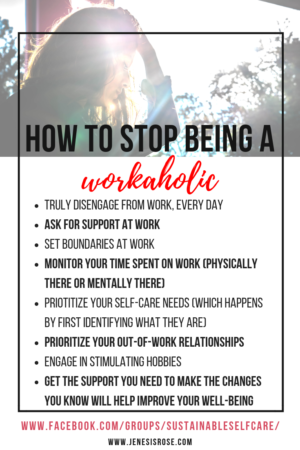
If doing this feels impossible, or if you feel like you’re about to burnout or are trying to recover from burnout and are ready to make a change and find peace with your work-life balance, and want to find a job that supports your well-being… Let’s talk.
If you are ready to make a decision about what the best next step you can take to find a healthier work-life balance is, book a Career Strategy Session today.
